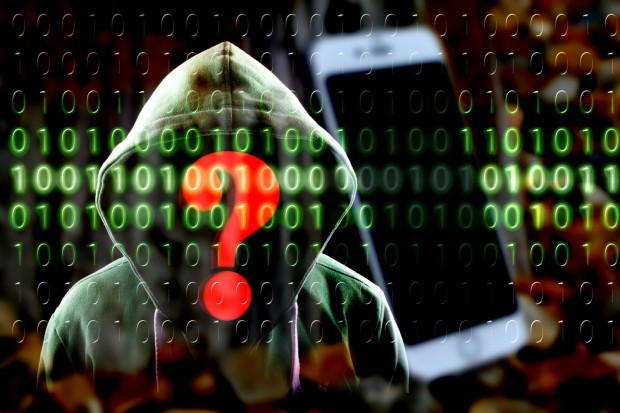
Hacking may damage your privacy and identity without your notice. Fraudsters constantly keep improving and updating their hacking techniques, making them harder to identify. Staying informed on recent hacks will help you defend your privacy.
According to the survey, 59% of Spanish citizens use the same phone for both personal and professional purposes. Similarly, more than 50% of those surveyed in Japan, Australia, and the U.S. said they use their phones the same way. The security concerns are the same whether these numbers are low or high. A smartphone with personal and professional data is always a tempting target for a hacker.
This implies that all of your apps become vulnerable to cyber theft the moment a thief gets access to your phone.
How to know if your phone was hacked?
Hacking is a technique or a virus that enables unauthorized access to your phone or its communications. There is a huge amount of phone hacking techniques, including hacking voicemails, live conversations, and smartphone data.
If you believe your phone might contain malware or a virus, check the factors below:
● Your phone loses charge faster
● Your phone works slowlier
● You notice strange activity on your accounts
● You notice unfamiliar calls or messages.
Tips to protect your phone from hackers
Use the methods mentioned below to keep your smartphone safe from hacks:
1. Use antivirus and VPN
Although a VPN and antivirus software each offer a high level of security, having both installed on your phone gives you extra security. VPN software, for example, keeps you safe by hiding your IP address and encrypting all data on your smartphone. However, if you download a file that contains malware, an antivirus will find it and prevent it from damaging your device.
The top VPNs for 2023 include cutting-edge privacy and security tools. Best VPNs will also feature comprehensive privacy policies that guarantee the safety of your personal information from tracking or hacking.
2. Use only trusted sources
Remember only to download applications available on the Google Play Store and the Apple App Store. Before authorization, any program available on these platforms must meet several security requirements and undergo an additional inspection for possible viruses.
3. Keep your software updated
Maintaining the most recent versions of your phone's operating system and apps may seem obvious, but we still need to mention it. Along with releasing new features, Android and iOS often upgrade their systems to include critical security improvements that defend you against vulnerabilities.
4. Be careful when granting app permissions
Your data may not be secure on any particular app, even if you only download it from trusted stores like Google Play or the App Store.
Restricting an app's access allows you to take more safety measures for your additional security. Many applications will request access to your contacts, location, and other details. While allowing these rights might seem innocent at the time, it might create a privacy risk in case of hacks, iPhone spyware, or other possible compromises.
5. Use a complex passcode
Contrary to what phone makers would like you to think, using biometrics to safeguard your phone via fingerprints or face scanners might not be the best solution. Since hackers have created several methods to get through biometrics, you are better to keep using a traditional PIN or password.
6. Use two-factor authentication
Two-factor authentication, often known as 2FA, is one of the easiest and most effective security solutions. Choose a software token-based technique that creates a time-based, one-time passcode, like Google Authenticator, for the highest level of security. Avoid using voice-based 2FA or SMS text messages as much as possible since they are less secure and are more vulnerable to hacking.
7. Keep your phone close
Although hackers can corrupt your phone remotely, physical access is still the most straightforward way for someone to get into your phone. However, you can also avoid it by simply carrying the phone with you anytime you're outside your home.
8. Avoid spam emails
Your email service's spam bin can identify and catch many of the threats, but unfortunately, it can't keep all of them out of your inbox. You can safeguard yourself from spam and phishing emails in the following ways:
● Avoid reading emails that seem suspicious; while doing so isn't very risky, it can still give the spammer access to information about you, like your IP address, Internet service provider, general location, and more.
● If you unintentionally open a malicious email, the best course of action is to delete it right away and refrain from accessing any links or files. These links can lead to harmful downloads or viruses.
● Your email provider usually marks any suspicious emails as spam or trash to assist your email service's detection algorithms in learning to recognize them more easily in the future.
Conclusion
Using security software on your phone can safeguard you and the items you store because so much of your life is on it. Regardless of whether you use an iOS or Android device, such software can protect your data, purchases, and financial transactions.
You might want to switch off your phone, remove the battery, and tuck it under your pillow for some nice lithium-ion-induced dreams if the prospect of hacking keeps you up at night. But instead, you should strengthen your mobile device security with solutions that provide safe online surfing and real-time defense against phishing attacks.
* This is a contributed article and this content does not necessarily represent the views of mobilenapps.com
most read
more stories from How To
-
iPhone Hack: How to Check Microphone-Enabled Apps And How to Turn Off Their Access for Privacy
Explore the nuanced landscape of iPhone microphone privacy, from recent breaches to proactive user strategies.
ernest hamilton -
How to Safely Reset Your Android Phone Before Selling or Passing It On
Learn how to safely factory reset your Android phone with this comprehensive guide. Protect your privacy before selling or passing on your device. Follow this step-by-step instructions for a seamless transition.
ernest hamilton -
How to Fix iPhone Boot Loop: Unlock Your iPhone's Potential with This Step-by-Step Guide
Learn how to conquer the iPhone boot loop with this comprehensive step-by-step guide. Follow the expert instructions to restore your device's functionality and bid farewell to endless reboots
ernest hamilton -
12 Ideas to Crafting a Memorable Mother’s Day Post on Your Business’ Social Media
Discover innovative post ideas and expert tips to engage your audience and drive sales. Read now and make this Mother's Day unforgettable!
ernest hamilton -
‘Coin Master’ Guide: How to Find Chests to Get More Card Collections, XP and Coins
Learn the secrets to unlocking Coin Master chests and supercharge your gameplay! This comprehensive guide reveals expert strategies for acquiring coveted chests, maximizing rewards, and dominating the game.
ernest hamilton -
Roblox: WS10'S MM2 Codes (May 2024)
Unlock rewards with WS10'S MM2 codes for May 2024 in Roblox! Get ahead in the game with exclusive bonuses.
ernest hamilton -
Idle Office Tycoon May 2024 Codes: Get Free Diamonds & More!
Unlock free diamonds and more in Idle Office Tycoon with the May 2024 codes! Redeem them now for exclusive rewards.
ernest hamilton -
Finding GBA ROMs for Your Delta Emulator: A Handy Guide
Looking for GBA ROMs for your Delta Emulator? Check out this handy guide to find and download your favorite games hassle-free!
ernest hamilton













